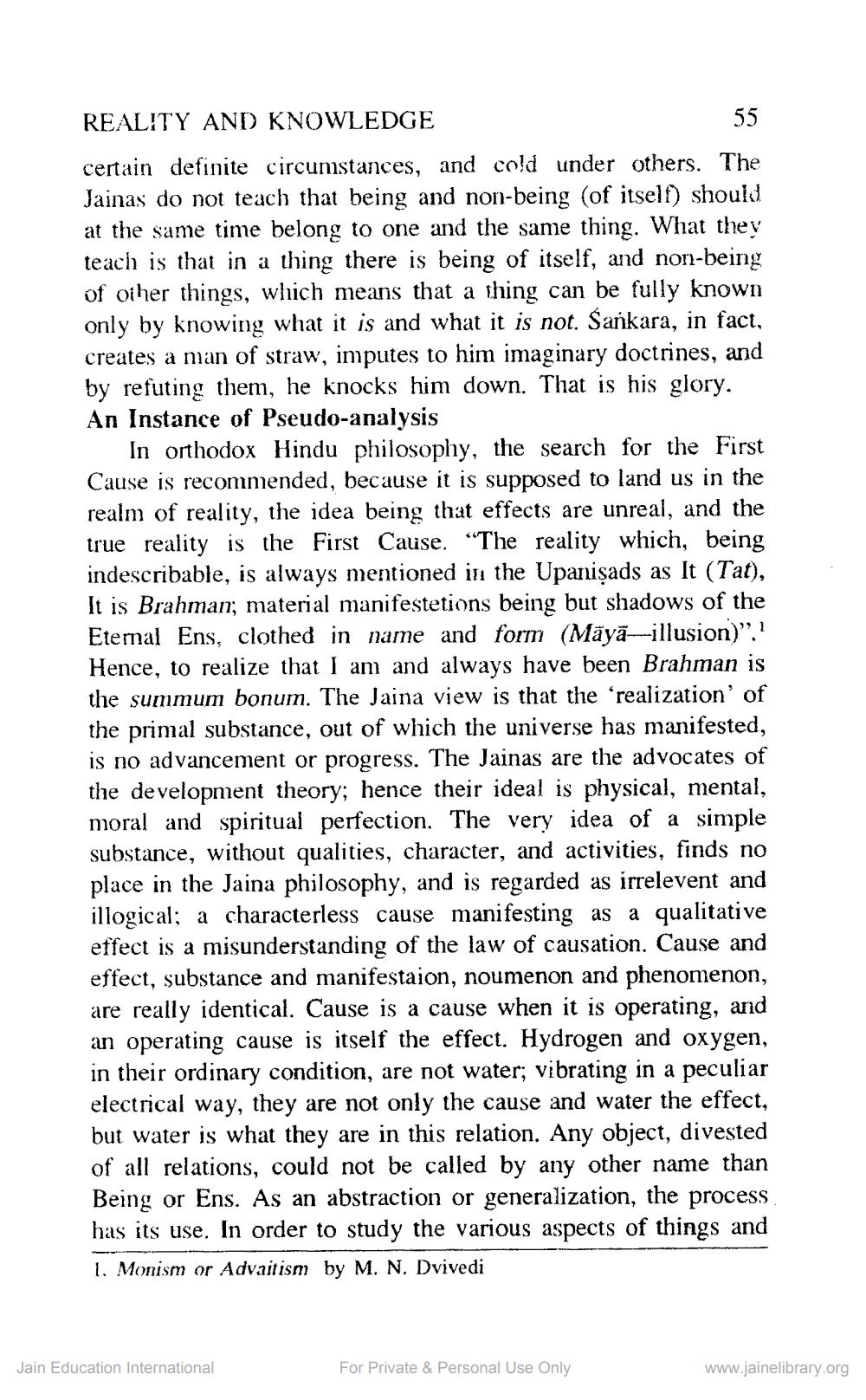________________
REALITY AND KNOWLEDGE
55
certain definite circumstances, and cold under others. The Jainas do not teach that being and non-being (of itself) should at the same time belong to one and the same thing. What they teach is that in a thing there is being of itself, and non-being of oiher things, which means that a thing can be fully known only by knowing what it is and what it is not. Sankara, in fact, creates a man of straw, imputes to him imaginary doctrines, and by refuting them, he knocks him down. That is his glory. An Instance of Pseudo-analysis
In orthodox Hindu philosophy, the search for the First Cause is recommended, because it is supposed to land us in the realm of reality, the idea being that effects are unreal, and the true reality is the First Cause. “The reality which, being indescribable, is always mentioned in the Upanişads as It (Tat), It is Brahman; material manifestetions being but shadows of the Eternal Ens, clothed in name and form (Māyā-illusion)”? Hence, to realize that I am and always have been Brahman is the summum bonum. The Jaina view is that the “realization' of the primal substance, out of which the universe has manifested, is no advancement or progress. The Jainas are the advocates of the development theory; hence their ideal is physical, mental, moral and spiritual perfection. The very idea of a simple
instance, without qualities, character, and activities, finds no place in the Jaina philosophy, and is regarded as irrelevent and illogical; a characterless cause manifesting as a qualitative effect is a misunderstanding of the law of causation. Cause and effect, substance and manifestaion, noumenon and phenomenon, are really identical. Cause is a cause when it is operating, and an operating cause is itself the effect. Hydrogen and oxygen, in their ordinary condition, are not water; vibrating in a peculiar electrical way, they are not only the cause and water the effect, but water is what they are in this relation. Any object, divested of all relations, could not be called by any other name than Being or Ens. As an abstraction or generalization, the process has its use. In order to study the various aspects of things and 1. Monism or Advaitism by M. N. Dvivedi
Jain Education International
For Private & Personal Use Only
www.jainelibrary.org




